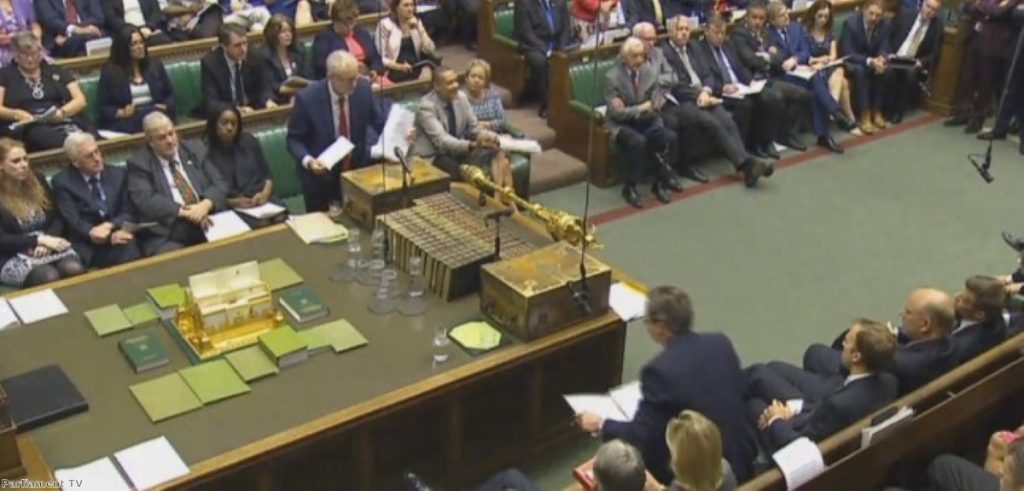Prime Minister's Questions has long been treated as the dramatic denouement of the political week in Westminster – the moment when battles are joined and crises come to a head. That was not the case today.
Jeremy Corbyn arrived late to a front bench almost entirely full of new faces. There have been so many resignations from the shadow cabinet in recent days that it's no longer possible to keep up with which Labour MPs, if any, are still left inside it. Perhaps nobody is. Rumours this week that Green party MP Caroline Lucas and George Galloway were somehow to be drafted in turned out to be false. Reports in recent days suggest that Corbyn and his shadow chancellor will in future engage in job shares for all the shadow cabinet positions they've been unable to fill. Quite how they plan to make this work once in government is anyone's guess, but given the events of this week that's not likely to ever be an issue.
One man still in a job is Labour's elected deputy Tom Watson, who is believed to be under pressure to mount a leadership challenge against Corbyn. The Labour leader took a seat next to Watson and then immediately turned his back on him to talk to another recent addition to his team. The two men sat there at odds with each other right up until the moment questioning began.
In the past, Labour leaders would be jeered by the government benches and even cheered by their own side when they stood up to speak. That long ago ceased to be the case. In fact when Corbyn finally stood up to speak today, the entire house was weirdly silent aside from a few cursory "yurgh, yurgh yurghs" coming from somewhere on the Labour benches. It was like watching the ghost of an opposition leader. As far as Labour MPs were concerned, the man was no longer there.


Corbyn began by asking about the huge damage the prospect of Brexit has already done to the economy.
"Everyone across this house should be concerned that the indicators from business and investors are that they see the UK as less attractive putting existing and future jobs at risk," he told the prime minister.
This was clearly an issue he felt very strongly about, although apparently not strongly enough to actually campaign on it during the referendum.
One of the few speeches Corbyn gave during the referendum campaign contained an entire section suggesting that warnings about the economic damage from Brexit were scaremongering. Now he was suddenly convinced the warnings were right all along.
"Last Thursday was a rejection of the status quo that is not delivering," Corbyn went on.
"The prime minister has two months left. Will he leave a legacy that involves [scrapping all the bad things he has done in government]."
Until this point Cameron had been unusually civil towards the Labour leader. Not any more.
"We all have to reflect on our role in the referendum campaign," Cameron told him.
"I know he says he put his back into it. I'd hate to see it when he's not trying…"
The Labour benches looked on in grim silence.
"And if he's looking for excuses for why the side that he and I were on about the referendum [lost] then frankly he should look somewhere else.
"He talks about job insecurity and my two months to go. It may be in my party's interest for him to sit there. It's not in the national interest. And I would say for heaven's sake man go."
Labour MPs looked on blankly, in hope, rather than expectation.









